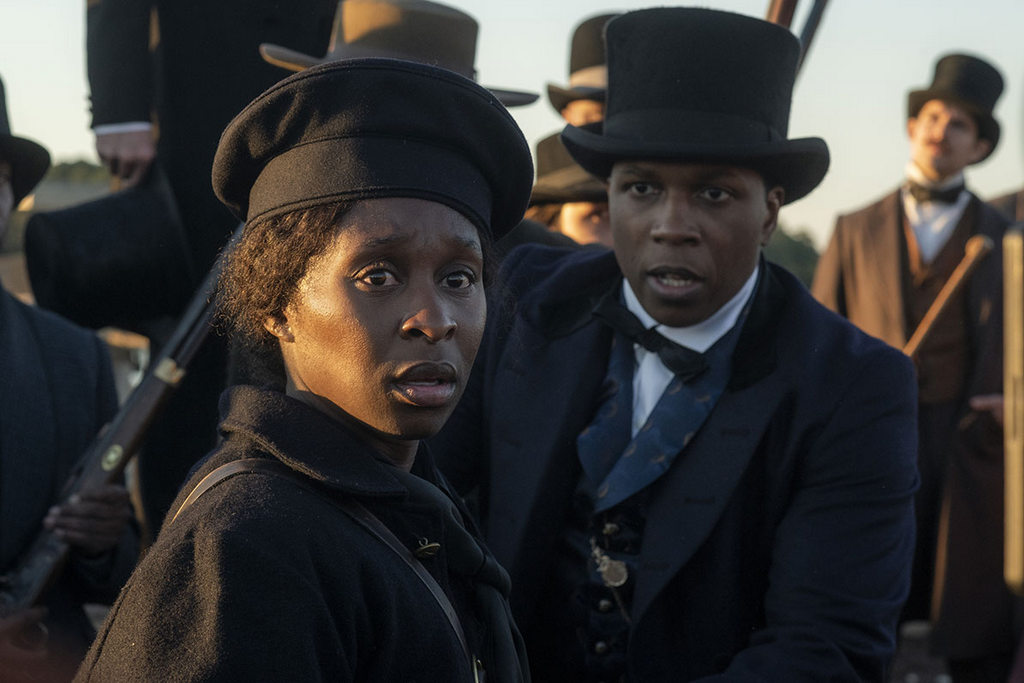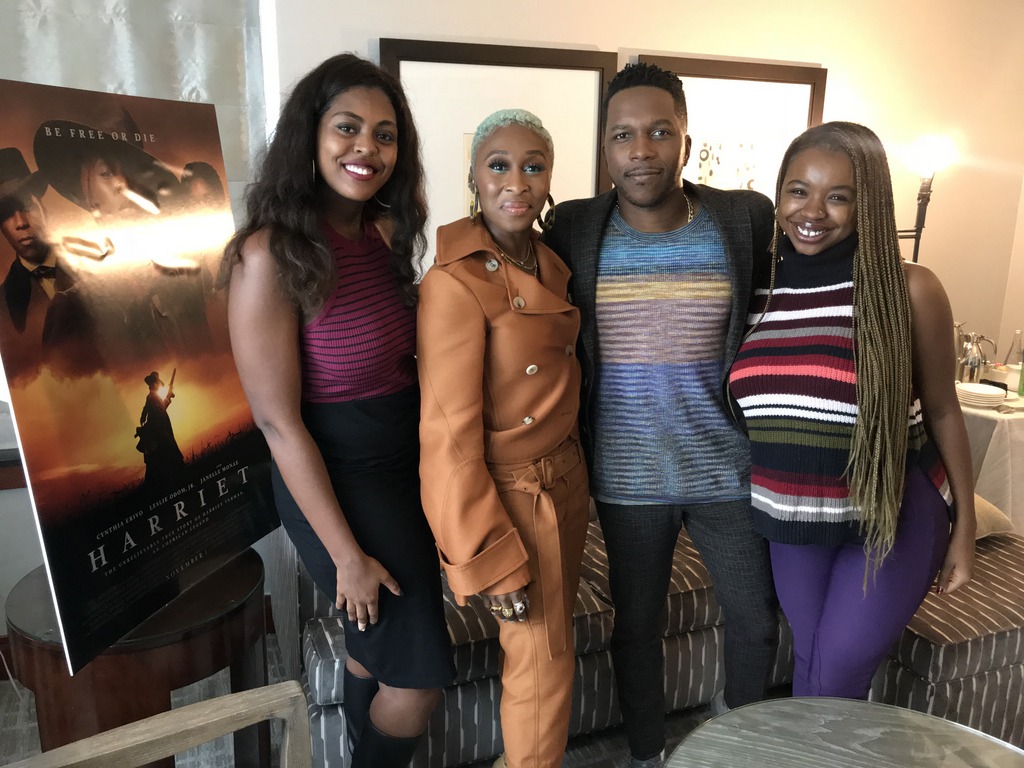[ad_1]
By Micha Green
AFRO Washington, D.C. Editor
[email protected]
This reporter has seen award-winning director Kaci Lemmons’ “Harriet,” starring Cynthia Erivo and Leslie Odom Jr. twice at two different premiers- the first time because it was necessary in order to interview the cast, and the second was because the film was spectacular.
First of all, Tony-award winning Erivo as Harriet Tubman is a perfect fit. Standing a little over five feet tall, Erivo was a perfect fit as historical accounts say Tubman was short-statured, and about the same height. However, it’s not just the similarities in their height and the costumes (Paul Tazewell) that make one believe Erivo is Harriet. Erivo completely embodies the Underground Railroad conductor, Civil Rights hero, abolitionist and suffragist in a way that audiences become to understand the true extent of Tubman’s struggles, strength and bravery.

Not only do audiences begin to understand Tubman as the superhero she was, who, alone, fled the dangers of slavery and leaving her masters and family. Audiences get to know Tubman, formally Araminta Ross, the lover, the family woman, the friend and the fearless leader.
Then there’s Tony and Grammy award winner Leslie Odom Jr., who plays William Still, a free businessman, abolitionist and Underground Railroad conductor. No rookie to portraying characters based off of real people, as he famously originated the role of Aaron Burr in Broadway’s Hamilton, Odom Jr., brings life to a lesser known Black hero in a way that makes audiences want to learn more about the abolitionist and all he did for the African American community.
Prior to interviewing Lemmons, Erivo and Odom Jr., the AFRO took a daylong trip to Dorchester County, Md., where Tubman was from, and got to walk in some of the Underground Railroad conductor’s footsteps. Kate Clifford Larson, a Tubman historian, who was enlisted by Lemmons to fact check the script, was on the tour and confirmed the accuracies of the great woman’s life. Such accuracy makes seeing this film, when it comes out on Nov. 1 even more important. It’s an honest depiction of slavery and finding freedom.

Below are a few excerpts from the interview with Lemmons, Erivo and Odom Jr.:
AFRO: Sometimes audiences grumble about another slavery story and reliving America’s dark history. Why is this story important for audiences today?
Lemmons: There’s not a thorough enough examination of history that exists to me. We should be studying this everyday, just to understand how we got here, because right now we’re in a difficult place- and so just to understand our history, that’s extremely important. But the Harriet story is so inspirational, and uplifting and exciting, and something we can all be proud of, so this is not just another slavery story. This is the good guys won and changed the world. It’s an incredibly powerful, inspirational, heroic story that we’re owed. It belongs to us. How can we not know the Harriet Tubman story? How can we not have a close friendship with this character? This is somebody that’s ours? We can hold her and have her inspire us.
AFRO: How were you able to bring life and your own stories to these characters, having not lived in the mid to late 1800s, during the time the film was set?
Erivo: With all the prep work, the physical work and the research. There’s only so much that you can do until you get on set. When you get on the set, there’s the script. You have the script, and when you’re lucky enough to have Kasi at the helm of that, and she’s done all the research herself and everything in the script is pretty much as true as it can be, my job is then to fill in the human, with the human being on the page. We have the story, and that’s one thing. We have the picture- fine. Now we have to put the living being in. So I searched for the things that make her human. I searched for the love that she had with her husband. I searched for the ingenuity in hiring a lawyer. To run a hundred miles, you have to be able to run. So what does she look like when she runs? And how does that feel as her? I know how I run, I know how Belle from “Widows” runs, but how does [Harriet] move? It’s finding the rhythm of the person- finding how the person stands, moves. Face- why does she have a down turned mouth? Does it look like she’s scowling? Does she save the smiles for certain people? It’s all of those things I searched for. That’s how you fill it with life and truth?
Odom Jr: For me, I think you gather as much of the facts as you possibly can. What I found the last time I did this (in “Hamilton”), I did start to feel bogged down by the facts a little bit. At a certain point I was reading very specific moments in his life, and thinking where I can inject that in the performance. It’s not in the script, but what if I put this in that part, where I’m standing in the dark in the back, and I play this moment? But then I realized I’m presenting an Aaron Burr book report. I’m not presenting the William Still book report, so you take in as much of the facts of the life as possible can, then at the end of the day you have to make it immediate. So you have to bring it as close as possible to you, because the things that they wanted is not very different than what we want. It’s desire, it’s lust, it’s passion, it’s rage, it’s the need for justice. All of those things we can relate to, we’re just wearing different clothes, but we can relate.
AFRO: What is your definition of freedom and has it changed having done this film?
Erivo: The space to do and move freely without anyone watching or telling you no or that you can’t, and the idea that the roles you make are your own and not someone else’s. That there isn’t fear to getting into trouble if a mistake is made. Those are the things that make up freedom for me.
Odom Jr.: It is liberty. It is deciding how you want to spend your day and deciding how you want to spend your time, and who you want to spend that time with. Nobody should have to make the choice to live free or die. So life without that as part of it is freedom.
[ad_2]
Source link
